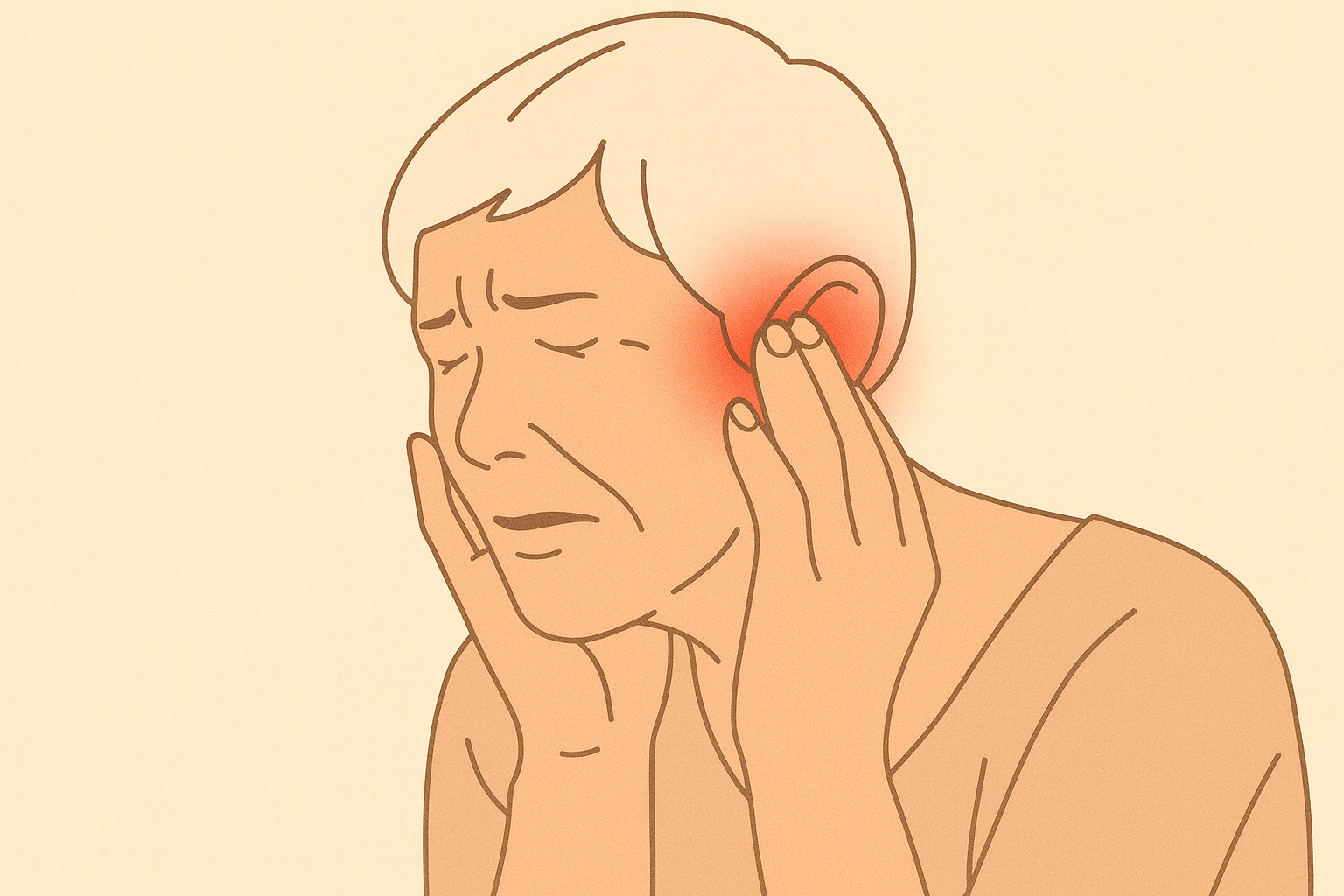
Tinnitus: Causes, Treatment Options, and How to Manage It.
If you suffer from any or all of the symptoms mentioned hereunder, we recommend that you consult with your healthcare provider. Always seek the advice of a physician or other qualified healthcare provider with any questions regarding a medical condition.
What’s that sound? You may have tinnitus if you ask that several times a day, only to be met with blank stares from others. This persistent ringing in your ears can affect your quality of life and cause anxiety, a lack of focus, and even depression. If this is your case, don’t worry; treatments are available.
Here at Auzen, we work with some leading companies for the advanced treatment of tinnitus. In this article, we'll explore tinnitus, its causes, and effective treatment options to help manage this persistent ringing in your ears.
Understanding Tinnitus: Causes and Symptoms?
Tinnitus is a common hearing disorder in which the person perceives a sound without an external source. According to a new U.S. study based on 50 years of data, tinnitus may affect nearly 750 million people worldwide. Despite being so common, tinnitus has no approved drugs for treatment.
Multiple cases can result in temporary or permanent tinnitus, including exposure to some drugs or a loud noise. Tinnitus is often associated with hearing loss, and according to the Hearing Loss Association of America, up to 90% of people with tinnitus have some degree of hearing loss. The “ringing in the ears” sometimes precedes hearing loss and, in other cases, appears later on the hearing loss journey.
Some strategies for tinnitus management include sound enrichment, tinnitus masking, relaxation therapy, cognitive behaviour therapy (CBT), and tinnitus retraining therapy (TRT).
Tinnitus may severely impact your quality of life.
Tinnitus often results from an underlying condition, such as age-related hearing loss, an eardrum injury, an ear infection, or even problems with the circulatory system. It may be permanent or temporary. In most cases, the ringing improves when the underlying condition is solved or with treatment that manages the perception of the noise.
Tinnitus may come in many shapes. Some people will report it as a permanent low noise, others as a “ringing”, and others as a high-pitched sound that comes and goes. But what is common to all of us tinnitus sufferers is the annoyance and anxiety it produces.
If you suffer from tinnitus, you know how difficult it is to focus on the simplest tasks while you have this constant noise in your ears. Not to mention the frustration when you think you’re hearing the phone or the doorbell again and find out it is not real.
Tinnitus can be extremely difficult for chronic sufferers and severely impact their quality of life. Some people report the noise bothers them even at rest, causing irritability, lack of sleep and depression.
That’s why seeking treatment to solve the underlying condition or manage noise perception is essential. Seeking counselling and attending support groups can also help manage the psychological and emotional effects of suffering from tinnitus.
How can you treat tinnitus? - Overview of management strategies
Unfortunately, for some people, tinnitus is a chronic condition. Some treatments and therapies can make your symptoms more manageable in these situations. Each case is unique, and at Auzen, our audiologists work with the patient to create an individual plan, which may include using a hearing aid with noise reduction and tinnitus management features such as TRT.
Counselling and education on tinnitus:
People suffering from tinnitus can sometimes feel isolated and stressed. Knowing more about their condition and meeting other patients can help them cope with tinnitus's stressful downsides. Tinnitus groups can help people feel more connected with other group members, support each other through distress, and build resilience. Groups also empower members with information and give them control over their condition.
Sound enrichment and tinnitus masking:
Adding sound to help you with the noise in your ears may seem counterproductive, but it works great. Sound therapy, called sound enrichment, uses sound to help you manage the annoying ringing.
How does sound therapy work? Maybe you’ve noticed that your tinnitus is more intrusive at night or in quiet environments. Listening to other sounds helps you distract from the tinnitus ringing and train your brain to dismiss it as a background sound and become used to it.
Sound enrichment is part of leading hearing solutions. Auzen expert audiologists can help you find the right solution to manage your tinnitus.
Relaxation therapy and stress management techniques
When you start experiencing tinnitus, it may be stressful, and anxiety is common. Relaxation techniques may help reduce stress and provide an effective self-management tool. You can try muscle relaxation techniques, yoga, tai chi or meditation.
Cognitive behaviour therapy (CBT) for tinnitus-related distress
Some supporters say it is the best clinically-proven treatment. CBT is a series of exercises or skills to promote habituation, cope better with tinnitus and resume a full life. The exercises help you positively manage your tinnitus. People who tried CBT say they can focus better, continue their daily activities and sleep with tinnitus.
Because there is no one size fits all solution for tinnitus, it should be addressed with a multidisciplinary approach.
What is Tinnitus Retraining Therapy (TRT)?
Unfortunately, no pill can cure or improve tinnitus. In recent years, a management technique, tinnitus retraining therapy (TRT), has gained momentum because of its effectiveness in helping patients. Tinnitus retraining therapy is a habituation therapy used to manage chronic tinnitus.
A TRT session combines counselling (TC) and sound stimulation with low-level sound generators to mask tinnitus, to reduce how much you perceive your tinnitus. TRT helps patients control their tinnitus and live a normal life.
How effective is TRT?
Clinical studies show TRT can notably help 80% of patients decrease the severy of their tinnitus. TRT also helps with other hearing disorders, such as reduced tolerance to sounds (hyperacusis), fear of sound (phonophobia), and sensitivity to sound (misophonia).
Are there limitations to TRT?
If TRT is so effective, why is it not offered everywhere? There are a couple of challenges that currently prevent TRT adoption.
TRT is personalised to the needs of the patient. Counselling is done one-on-one according to each patient-specific case, and an expert audiologist fits different instrument models for your sound therapy to help you with habituation. As such, there are few audiologists trained in the technique.
Another reason Tinnitus retraining therapy is not widely offered is that a TRT cycle is a long-term commitment, and it may take from a couple of months to years to manage your tinnitus with it. TRT is not for everyone because it requires patients to be consistent with sessions.
Do hearing aids help with tinnitus?
Hearing aids can help many tinnitus patients with hearing loss, making both conditions more tolerable. Hearing aids can also slow down the progression of both hearing loss and tinnitus. Here’s how:
Hearing aids give the brain a real sound to focus on, shifting its attention from the tinnitus. Hearing aids can amplify background noise and mask the tinnitus.Advanced hearing aids include custom tinnitus programs. When looking for a new hearing aid that also helps with your tinnitus, look for TRT support in the hearing aid specification, along with other features like sound enrichment and tinnitus masking.
Several hearing aids come with built-in tinnitus support, such as the ReSound Omnia 9 RU961-DRWC, the Phonak Audeo Lumity L90-RT etc.
For more information about hearing aids with built-in TRT support features, don’t hesitate to talk to an Auzen audiologist.
What to look for in a hearing aid for tinnitus management
Because tinnitus is a complex condition, often paired with hearing loss, only an expert audiologist can prescribe and set up a hearing aid to help you manage it. Here are some factors you should consider when shopping for a hearing aid:
The size and shape should comfortably fit so you can wear it for extended periods. Streaming smartphone application: most hearing aids today work with Android and iOS devices and use a smartphone application to stream white noise or other sounds to help distract from the tinnitus. Sound enrichment: some hearing aids come with built-in sound enrichment capabilities, which can be helpful for patients without smartphones. Rechargeable batteries: they are convenient and environmental-friendly. A rechargeable battery can last an entire day of use on a full charge.
How Auzen can help manage your tinnitus,
Tinnitus is a common hearing disorder that can be debilitating and impact your quality of life. Although there is no cure for tinnitus, management strategies such as counselling, relaxation, and tinnitus retraining therapy (TRT) have been proven to alleviate symptoms and help you regain your quality of life. Choosing the right hearing aid helps reduce and mask the tinnitus noise.
At Auzen, we are committed to providing our patients with a personalised service with the utmost care. Our audiologists are trained in tinnitus management and will work with you to identify the best strategy for you. With their help, you can find advanced hearing aids with TRT support, which can significantly improve your quality of life.
Ask your Auzen audiologist about the optimal hearing aid for your case.
Schedule a free appointment today with an Auzen audiologist
Sources:
https://www.nidcd.nih.gov/health/tinnitus

Leave a comment
This site is protected by hCaptcha and the hCaptcha Privacy Policy and Terms of Service apply.